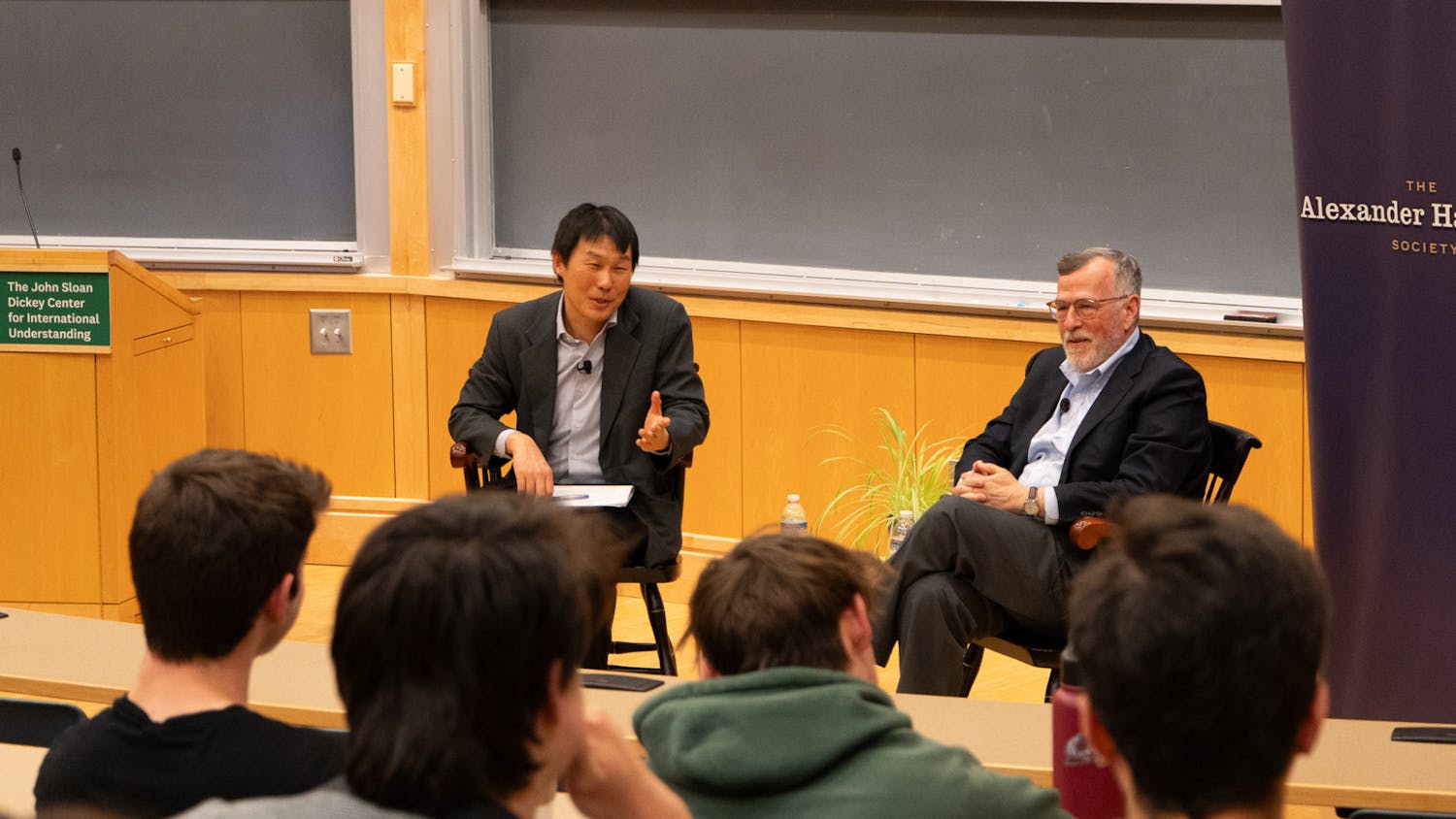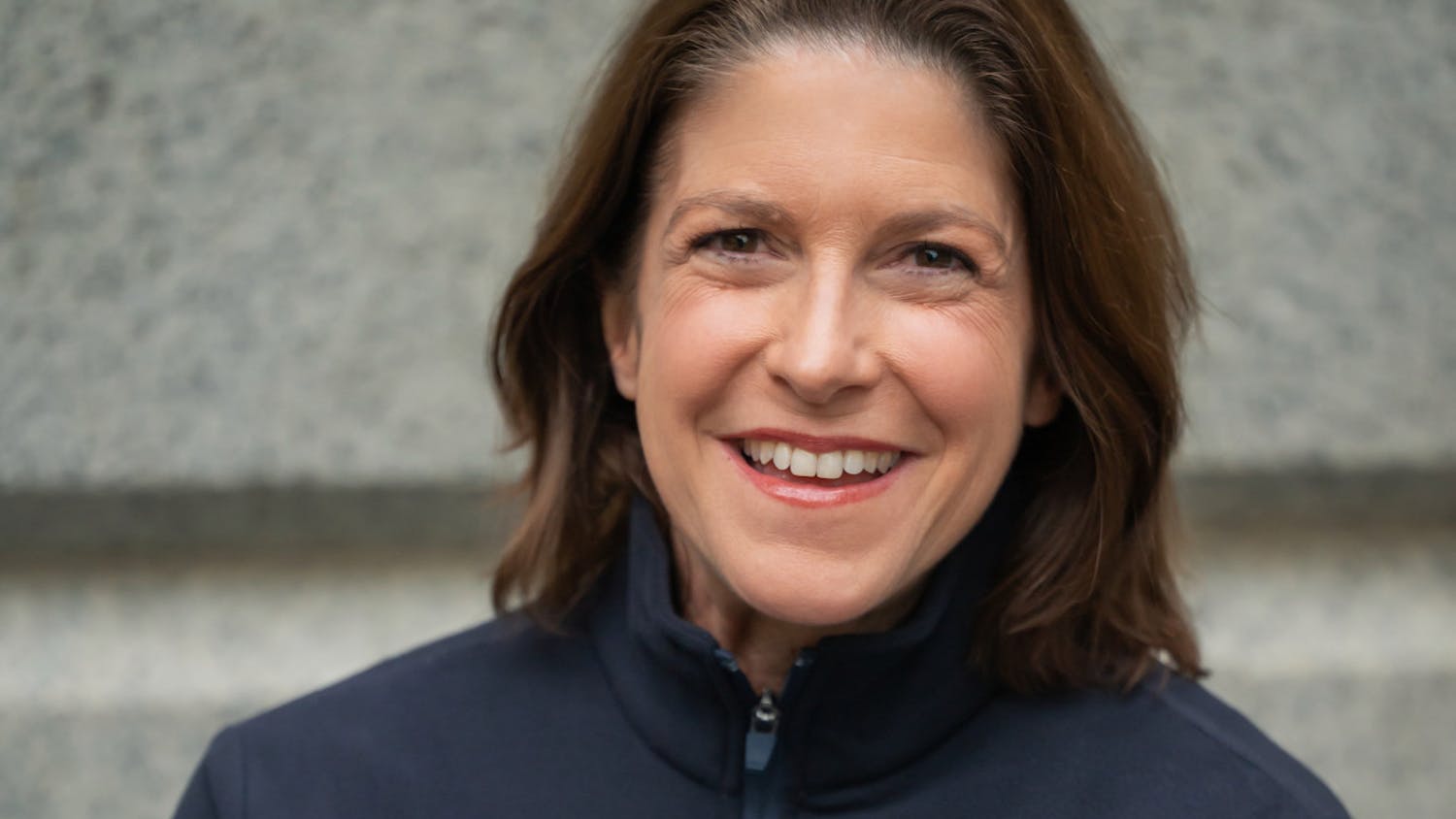Dartmouth Dining Services and several partners organized this year’s Food Day programming, which ran from Oct.1 to Oct. 21. The programming, meant to highlight healthy and sustainable food, featured apple picking at Riverview Farm, a talk by activist and educator Malik Yakini, a screening of the movie “An Inconvenient Sequel” and a Harvest Dinner at the Class of 1953 Commons.
In a joint interview with director of DDS Jon Plodzik DDS chef Christopher Kaschak and DDS dietitian Elizabeth Rosenberger said Food Day at Dartmouth began as a small-scale celebration in 2012 and has now grown into a month of events.
“The first two years we celebrated Food Day on campus, it was just me,” Rosenberger said.
Rosenberger said Food Day at the College was first created in correspondence with National Food Day, which is on Oct. 24 every year. National Food Day, invented by the Center for Science in the Public Interest in 2011, celebrates healthy, affordable and sustainable dietary choices.
One of the key events of Food Day this year was the Harvest Dinner held on Oct. 19 in the Class of 1953 Commons. The dinner served a total of 2,348 people and represented over 20 local vendors, according to Rosenberger.
The ingredients DDS purchased for the dinner were all locally sourced and included 150 individual chickens, 110 pounds of fresh pasta, 300 pounds of hake, 450 pounds of mashed potatoes and 550 portions of both banana bread and blueberry bread, which were all consumed by the end of the night, according to Kaschak.
The Harvest Dinner was centered on what Kaschak describes as “clean eating” and featured simplified recipes and fewer ingredients.
“If you saw our grill area, instead of having burritos or tacos, we did a very clean, simple roast chicken — salt, pepper, oregano, a little bit of garlic,” Kaschak said. “And at the same time, we were there carving in front of [students], speaking with them directly.”
Plodzik said the purpose of the Harvest Dinner was to bring attention to the over 150 local partners of DDS.
In addition, DDS invited Yakini, the executive director of the Detroit Black Community Food Security Network, to deliver a talk titled “The Good Food Revolution: Freedom, Justice and Equality” on Oct. 16.
Yakini, who views eating as an ecological, political, cultural and social act, said he discussed the barriers that have prevented America from having an equitable food system, such as capitalism and the patriarchy.
“What I would suggest is that the students and the staff at Dartmouth look more critically at the food system and figure out where there might be gaps,” Yakini said. “Where are there possibilities to leverage the buying power to support local growers to create a more localized food economy?”
Oliver Edelson ’18 said he appreciated Yakini’s talk.
“Having a speaker like Malik Yakini, who is a voice that we don’t get to hear often at Dartmouth, rightfully makes us uncomfortable in a lot of ways,” Oliver Edelson ’18 said. “I think it was very courageous and bold of the Food Day planning committee to invite a speaker like [Yakini].”
Edelson has participated in Food Day programming in the past two years as a student representative of the College’s environmental studies department.
According to Rosenberger, Apple Crunch took place in multiple locations on campus this year, as opposed to Geller Plaza in previous years. Apple Crunch is an event in which students are provided with free local apples and information about the spirit of Food Day. The change in location was an effort to increase participation, Rosenberger said.
“This year was a really good direction in terms of meeting people on their own turf to talk about these issues instead of having them come to you,” Edelson said. “I think that’s the format that is more conducive to real discussion and greater visibility.”
Edelson added that future Food Day celebrations can involve a student committee to drive discussions around food-related issues students care about. This year, Dartmouth Dining Services partnered with the environmental studies program, the Dartmouth Organic Farm, the Dartmouth Sustainability Project, the Student Wellness Center and 99 Rock.
Plodzick said DDS hopes to expand the Harvest Dinner to all three meals of the day and to encourage conversation between Dartmouth students and local providers.
“When we started this several years ago, it was my whole mindset to bring these people in so they could tell you their stories,” Rosenberger said. “Just a couple of sentences of how much work it is, what it takes, what it means to grow and get all of this stuff to market.”
Hye Young is an exchange student from Seoul, South Korea. Hye Young is majoring in comparative literature with a focus on postcolonial literature, and joined the D partly because of her love of news recaps by late night show hosts. When she isn’t struggling to keep deadlines for essays and overanalyzing literary texts, Hye Young likes watching movies and going stargazing.



